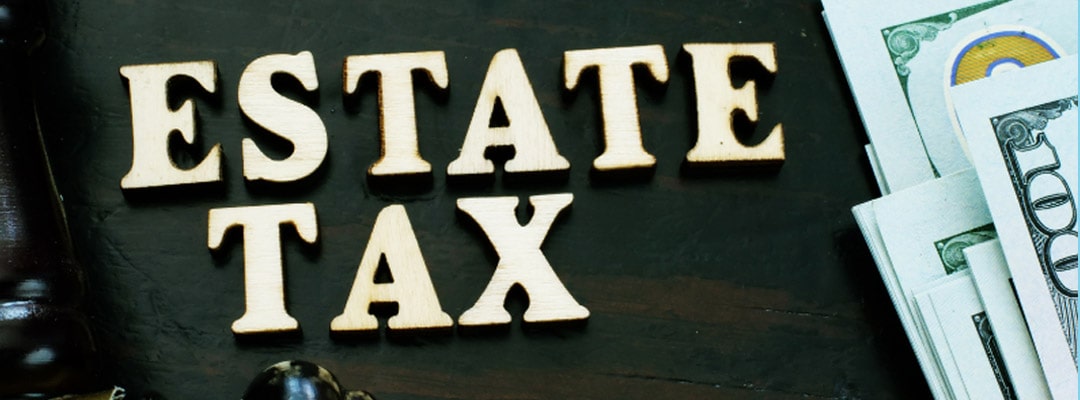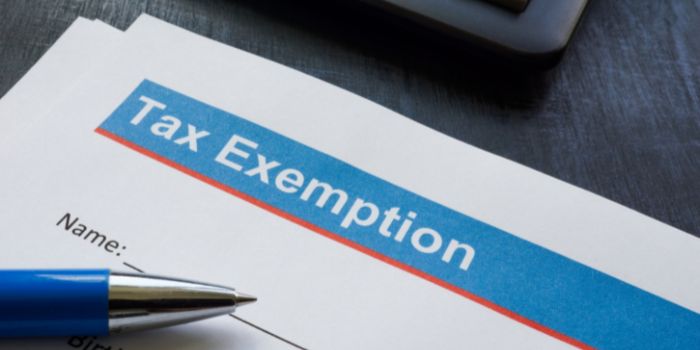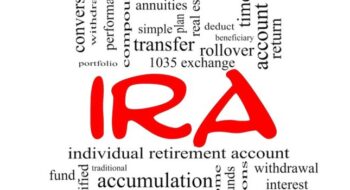The big tax break you might have been counting on is shrinking in 2025.
This break called the estate tax exemption, lets you leave a certain amount of money to your loved ones without them owing taxes on it.
But here’s the catch: the amount you can leave tax-free is going way down.
We’ll explore some ways to handle this change, like using annual gift tax exclusions or making smart gifts, and protect your legacy.
Estate Tax Exemption Ending in 2025:
- The estate tax exemption, which allows you to pass on a certain amount of wealth tax-free, is shrinking significantly in 2026.
- This means your heirs could owe more in estate taxes, potentially forcing them to sell assets to cover the bill.
- Take action now to reduce your taxable estate. Strategies include gifting, setting up trusts, and using life insurance.
- Consult with a financial advisor or estate planning attorney to create a personalized plan.
- Estate planning is about more than just taxes; it’s about protecting your loved ones and ensuring your wishes are honored.
- Don’t wait! Start planning today to secure your legacy and provide peace of mind for your family.
Understanding the Estate Tax Exemption
Imagine your life’s savings as a big pie. You’ve worked hard to bake this pie, and naturally, you want to share it with your family.
But the Government might want a slice, too – that’s where the estate tax comes in.
The estate tax exemption is like a shield, protecting part of your pie from estate taxes.
Right now, that shield is big, but in 2026, it shrinks dramatically thanks to the estate tax exemption 2025 sunset.
This means more of your pie could be subject to estate taxes, leaving less for your family, impacting your retirement score.
The estate tax exemption applies to the total value of your assets when you pass away – your house, investments, retirement accounts, everything.
This total is your taxable estate. If it’s bigger than the exemption, your heirs might owe estate taxes on the difference.
But there are ways to make your taxable estate smaller. One is the annual gift tax exclusion. This lets you give some money to loved ones each year, tax-free.

Understanding the estate tax exemption is key if you care about passing on your wealth.
By acting now, you can make sure your family gets the full benefit of your hard work.
The Impact of the Reduced Exemption
Imagine that pie again. Right now, a big chunk is protected from estate taxes.
But in 2026, that shield gets a lot smaller. Suddenly, a much bigger piece of your pie is exposed.
This means more of your hard-earned money could go to the Government instead of your family. That’s a big deal, especially if you’re carefully planning your Retirement Roadmap.
Thanks to the Tax Cuts and Jobs Act of 2017, we’ve enjoyed a generous estate tax exemption.
But this is temporary. Come 2026, that exception is set to be cut in half.
This affects not only the very wealthy but also many families who’ve worked hard to build a comfortable life.
The reduced exemption could force your heirs to sell assets – maybe even the family home – to pay the estate taxes.
It could also impact family businesses, farms, and other valuable legacies you hoped to pass on.
Besides the financial hit, there’s the emotional toll. Imagine the stress your family could face, trying to figure out how to pay a huge tax bill on top of grieving your loss.
That’s not the legacy anyone wants to leave.
But it’s not all doom and gloom. There are strategies to protect your pie, even with the reduced exemption. Things like gifting, trusts, and life insurance can all help shrink your future taxable estate.

The lifetime gift tax exemption also lets you give away a certain amount tax-free during your life.
Understanding the impact of the reduced exemption is the first step. By being proactive, you can make sure your loved ones are taken care of, no matter what the future holds.
Strategies for Navigating the Change
Don’t worry; you’re not alone in this.
Even with the upcoming changes to the estate tax exemption, there are smart moves you can make to protect your pie and ensure your loved ones are taken care of.
Think of it like planning a detour around a roadblock – a little planning now can save a lot of headaches later.
Here’s a quick overview of some strategies:
- Gifting: Use the annual gift tax exclusion to give some of your pie away now. Over time, these gifts can significantly shrink your taxable estate.
- Trusts: Set up trusts to protect parts of your pie and potentially avoid estate taxes.
- Life insurance: Buy life insurance to cover the estate tax bill, leaving more of your original pie for your family.
- Charitable giving: Donate to charities you care about to reduce your taxable estate and lower your overall tax burden.
Navigating these strategies can be tricky, so don’t hesitate to seek professional advice.
A financial advisor or estate planning attorney can help you create a personalized plan that fits your unique situation and goals.
Think of them as your co-pilots, guiding you through the complexities of estate planning and ensuring a smooth journey for your loved ones.
Remember, the Tax Cuts and Jobs Act gave us a temporary gift with the increased exemption.
But, like all good things, it must come to an end.
By taking proactive steps now, you can ensure that your legacy is protected and your loved ones are provided for, even after the federal estate tax exemption sunsets.

If you’re feeling overwhelmed, don’t worry. There are plenty of resources available to help you.
Attend a Retirement Webinar, consult with a financial advisor, or do some research online. The key is to start planning now so you can enjoy peace of mind knowing that your loved ones are taken care of.
Seeking Professional Guidance
- Estate planning is like a puzzle, and sometimes, you need a little help putting the pieces together. Don’t hesitate to reach out to professionals who specialize in this area. They can help you understand the complexities of estate taxes, trusts, and gifting and guide you toward the best strategies for your situation.
- Think of it like having a coach for your financial journey. A financial advisor or estate planning attorney can help you create a personalized plan that aligns with your goals and values. They can also help you navigate any changes in tax laws or regulations that might affect your estate.
- Don’t be afraid to ask questions. The more you understand about estate planning, the more confident you’ll feel about your decisions. Ask your advisor about different types of trusts, such as the spousal lifetime access trust, and how they can benefit your family.
- Be open and honest with your advisor. The more information they have about your assets, goals, and concerns, the better they can serve you. Remember, they’re on your team and want to help you achieve the best possible outcome for your family.
- Remember, estate planning isn’t just about avoiding taxes. It’s also about ensuring that your loved ones are taken care of and your wishes are respected. By working with a qualified professional, you can create a plan that provides peace of mind and protects your legacy.

- Start early and review your plan regularly. As your life circumstances change, so too should your estate plan. By staying on top of things and making adjustments as needed, you can ensure that your plan remains effective and relevant.
- Don’t let fear or procrastination hold you back. Taking control of your estate planning is an important step in securing your financial future and providing for your loved ones. With the right guidance and support, you can achieve your goals and discover your retirement with confidence.
Estate Planning Beyond Taxes
Think of your estate plan as more than just a shield against taxes; it’s like a treasure map for your family.
It guides them through the complexities of settling your affairs and ensures that your wishes are carried out, even when you’re no longer around.
Sure, minimizing the estate tax rate is important, but estate planning goes beyond that.
It’s about preserving your values, protecting your loved ones, and ensuring a smooth transition of wealth.
It’s about creating a legacy that reflects your life’s journey and the people you cherish most.
Consider this: what if you become incapacitated and can no longer make decisions for yourself?
A well-crafted estate plan includes documents like a durable power of attorney and a healthcare directive, allowing you to designate trusted individuals to make decisions on your behalf.
- Prevent family conflicts: Clearly outline your wishes to minimize disagreements and ensure a fair distribution of your assets.
- Ensure your loved ones are taken care of: A well-crafted plan can provide peace of mind and security for your family.
- Review and update your plan regularly: Life circumstances change, so your plan should too.
Take advantage of resources like Live Webinars and consultations with professionals to stay informed about changes in tax laws and estate planning strategies.
The more you know, the better equipped you’ll be to make informed decisions.
That considers both gift and estate taxes, as well as income taxes, impacting your overall financial picture.
By taking a proactive approach to estate planning, you can enjoy peace of mind knowing that your loved ones are protected and your legacy is secure.

So please don’t wait until it’s too late.
Start planning today and leave a lasting legacy that reflects your values and aspirations.
Wrapping up
The estate tax exemption sunset in 2025 is like a storm on the horizon. But remember, you’re not alone.
With smart planning and the right guidance.
You can weather this change and ensure your loved ones inherit the full measure of your hard work.
Take advantage of strategies like lifetime gifting and consider the impact of the anti-clawback rule on inherited assets.Don’t let fear or procrastination hold you back.
The sooner you start planning, the more options you’ll have and the more peace of mind you’ll gain.
Remember, estate planning isn’t just about taxes.

It’s about protecting your family, preserving your legacy, and ensuring your wishes are honored. So take that first step today. Your future self – and your loved ones – will thank you.
Frequently Asked Questions
What is the estate tax exemption sunset in 2025?
The estate tax exemption sunset in 2025 refers to the scheduled reduction of the current generous estate tax exemption amount. This means that after 2025, a significantly smaller portion of an individual’s estate will be exempt from federal estate taxes.
How will the reduced exemption affect me?
If your estate’s value exceeds the reduced exemption amount after 2025, your heirs may have to pay estate taxes on the excess. This could potentially force them to sell assets or dip into their inheritance to cover the tax bill.
What can I do to prepare for the change?
Consider strategies like gifting, trusts, and life insurance to reduce your taxable estate. Take advantage of the annual gift tax exclusion and explore options like lifetime gifting to transfer wealth to your loved ones tax-efficiently.
Do I need to file a gift tax return if I make gifts?
You may need to file a gift tax return if your gifts exceed the annual exclusion amount or if you make certain types of gifts. Consult with a tax professional to determine your specific filing requirements.
Should I consult with a professional about estate planning?
Yes, it’s highly recommended to seek guidance from a financial advisor or estate planning attorney. They can help you understand the complexities of estate planning and develop a personalized strategy to protect your assets and ensure your wishes are carried out.




